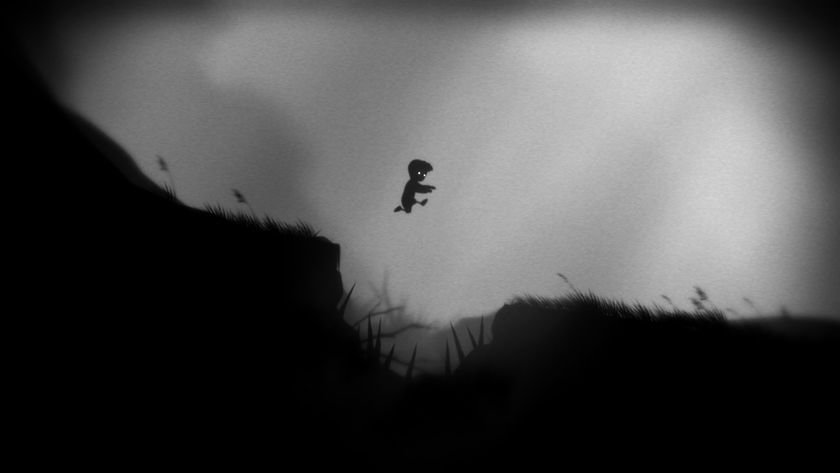GamesRadar+ Verdict
Pros
- +
Amazing atmosphere
- +
Clever
- +
organic puzzles that don't get tired
- +
Captivating visual style
Cons
- -
Could have been longer
- -
Late-game platforming can feel very slightly clunky
- -
Vague achievements (sorry
- -
it's just so nearly perfect)
Why you can trust GamesRadar+
Out on Wednesday the 21st of July for XBLA, PlayDead’s Limbo is an experience you won’t find anywhere else. You know that feeling you get after a really intense, really weird dream? You know, that uneasy sense of dislocation as your head continues to reel from the impact of what you perceived the night before? That strange, swirling feeling of an unsettling significance, the source of which you can’t quite put your finger on? Limbo is dripping with that.
It isn’t just a platformer. It isn’t just a puzzler. It’s both of those things, but it’s also much, much more. It’s also a deeply affecting, at times absolutely terrifying emotional experience, with real weight and a subtle but densely-layered narrative. Things won’t look the same after you’ve finished it. Here’s why.
It has an aesthetic you can drown on
I promise you, you have not experienced anything like Limbo in the video game medium. Maybe in film, if your cinematic tastes lean towards the seriously left-field, but in terms of the look, sound, and most importantly the feel of the world you’ll explore, Limbo is on a level you haven’t imagined before. Forget the fact that it’s 2D. That’s irrelevant. Limbo exists in a world as cohesive and well-realised as any in gaming, but far more textured and complete than most.

Above: The sense of nightmarish isolation is there throughout every platform and puzzle
It’s not just the black and white silhouettes, though they’re insanely powerful and affecting. It’s the way Limbo’s haunting, mournful looks interplay with an ambient soundtrack at times unsettling, at times downright scary and at times eye-wateringly beautiful. With deft changes in Limbo’s fuzzy, diffused lighting and the tone of its soundscape, its atmosphere can shift seamlessly from nightmarish to redemptive within seconds. And as I’ll detail a little further on, this is all far more than game design sleight of hand. It’s used with finesse and intelligence to pack real punch and significance along the way.
The gameplay is pure, simple sophistication
Limbo’s central mechanics are defined by the fact that there really aren’t any. That’s a confusing statement, I realise, so let me explain. The only controls you have are simply the left stick to move The Boy, a jump button, and a multi-purpose button for interactions with the environment. Primarily used for activating devices and grabbing things in order to move them around, it’s all you need in order to navigate every hazard and antagonist The Boy encounters.

Above: Forget jumping over it or hitting itwith a Chris Redfield punch. Things in Limbo require a realistic angle
There’s no central mechanic or trick to master. Every one of Limbo’s puzzles is a physical environmental challenge overcome by logical (and sometimes incredibly precise) manipulation of the game’s realistically implemented physics model. Every solution is right there on the screen in front of you. Nothing is ever hidden and no power-ups are ever required. It’s all a case of instinct and lateral thinking. If a solution would work in the real world (albeit a 2D real world), it will work in Limbo. Speed of movement, inertia, even vibrations and blunt force come into play at every turn, giving Limbo’s game mechanics both an elegant simplicity and a satisfying complexity, albeit one that’s refreshingly clear and instinctive to overcome.

Above: The boy is aware of his surroundings, but will sometimes only come to understand them directly
Need to obtain an object that’s suspended high above you by a rope? Find your way up there, use it as a platform, then jump to break that rope and drop it to the ground. Need to stack two crates on top of each other? Drop one on the end of the moving platform that’s sliding in and out of the wall, then quickly push the other underneath it as the retraction pushes it off. Is a weak surface cracking beneath your weight? What would happen if something hit it with more force?
And the best part is that Limbo has a Mario-Galaxy-style philosophy to reusing ideas. In that it doesn’t. With no central tricks or moves to dictate the gameplay, it’s able to explore The Boy’s influence on the world around him with complete freedom. Every puzzle requires a different approach or a new way of thinking, and any concept that is repeated is expanded upon immensely as it progresses. Limbo is a game that really trusts the player to think. There is no tutorial beyond what you learn of your abilities first-hand, and every solution comes about through nothing less than creative thought and experimentation. As well as bringing about fantastic gameplay, it’s a philosophy that also creates a powerful bond with The Boy himself. And that's even more important when you consider that...
It’s terrifying
Know this. Limbo is one of the most genuinely disturbing games I’ve played in a very long time. Ever, in fact. And I’m not talking about the usual video game approach of gratuitous gore and jump-scares. This is intelligent horror executed sublimely, with real thought and depth.

Above: Friend, enemy, or somewhere in between? There's only ever one way to find out...
Those silhouettes mask a multitude of horrors, and while I’d set fire to my own feet before relating any spoilers, I will tell you that you’ll rapidly learn not to trust anything you see in Limbo. Nightmare creatures lurk almost in plain sight. Ambiguous shapes tease with simultaneous promise and threat. And every reveal, attack, escape and set-piece is executed with such peerless pacing and attention to emotional detail that you’ll be drained every time you play it.
Dangers are introduced (or hinted at), then removed to play on your mind during a quiet part of your journey. Deaths are telegraphed just soon enough to give you the time to realise how the chain of events suddenly in motion will lead to them, before those nightmarishly-paced events play out with almost inevitably fatal consequences. And those deaths are brutal, fast and completely uncompromising. The Boy will be horrifically broken and mutilated along his journey, but thanks to his innocent, quietly sad persona and the emotional weight of his journey, his callously savage treatment never ever becomes comedic.
The story will get right under your skin
Rarely has a game told its story in such a subtle but powerful way. There are no cut scenes, there is no dialogue, there is no on-screen text ever. There isn’t even a HUD. There’s just The Boy, his journey, and what happens to him along the way. The Boy has lost his sister and has entered Limbo to find her. That’s all you know, and that’s all you need to know. You’ll find out the rest along the way. Or not, depending on how deeply your want to question and interpret things.

Above: You'll feel for The Boy so strongly that even stock platformer tropes will become desperately fearful
Limbo you see, has an ambient narrative, made up of darkly ethereal images, dreamlike sequences and emotional punctuation made up of deep tonal shifts. There are long periods of silence, periods when little happens on-screen but plenty happens in your head, each ordeal The Boy undergoes and each future one hinted gestating in your mind and adding more tone and meaning to the journey and the ambiguous and sinister world it moves through.

Above: As poetic as the imagery is, the total experience is even more so
New characters and elements of Limbo’s environment are introduced and implied, before disappearing back into the mist, allowing Limbo’s story to be interpreted literally or metaphorically. It’s dream-logic narrative evoked at its very best, and it all leads to an ending that at first seems abrupt, but on reflection would lose its perfection if it was even a second longer.
If you like clever game design, intelligent horror, or well-realised artistry, you really have to play through Limbo. It's an immaculate production, as close to perfect as it gets, and it will stay with you for a very long time. But please take my advice. Turn the lights off, get rid of all distractions and play it alone. You should even go so far as turning your Xbox notifications off. Because Limbo deserves your full attention, and will reward it immensely from start to finish.
More info
| Genre | Adventure |
| Description | LIMBO puts players in the role of a young boy travelling through a hostile black and white world in an attempt to discover the fate of his sister |
| Platform | "PS Vita","PS3","PC","Xbox 360" |
| US censor rating | "Teen","Teen","Teen","Teen" |
| UK censor rating | "","18+","18+","18+" |
| Release date | 1 January 1970 (US), 1 January 1970 (UK) |














